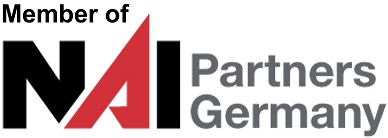Legal & Compliance Initiative Real Estate
The Legal & Compliance Initiative was founded in July 2014 by leading consulting firms from the commercial real estate industry and consists of ethics, legal and compliance officers from the associated companies.
The goal of the initiative was and is not to solve compliance issues individually in each company, but to jointly establish high ethical standards in the real estate industry. In addition, the aim was to ensure that the increasing legislative requirements on compliance-relevant topics are implemented to a high standard and, above all, that the clients of the consulting companies can rely on a uniform approach by the consulting companies, which makes their own handling of the legal requirements easier. The aim of LCIRE, which was conceived as a working group, was thus to promote measures aimed at increasing the professionalism of commercial real estate service providers in the area of compliance.
Over the past few years, more real estate consulting firms have steadily become members of LCIRE and actively participate in the regularly scheduled meetings. The initiative has also established close contact with real estate associations such as the ZIA and the ICG and has in the meantime already been invited to working meetings with the Federal Ministry of Finance, which is responsible for legislation under the Money Laundering Act (GWG). On the one hand, this involved an informative exchange on the practical implementation of the Money Laundering Act, and on the other hand, the legal adjustments to the Money Laundering Act that have been made in recent years, in order to find out about the concerns and needs of commercial real estate advisors in particular. In this way, the LCIRE was able to successfully initiate one or the other legislative adjustment of the GWG.
Since the start of the initiative's activities up to the present day, the implementation of the requirements of the GWG in the daily practice of real estate consulting companies has emerged as the focus of the joint work.
The result of the cooperation is, among other things, a joint flyer on questions of the Money Laundering Act, as well as a uniform questionnaire for the identification of the beneficial owner. In the meantime, this is also used as a template by many other companies in the real estate sector and is well received by our customers, who can now prepare their necessary documents for identification based on the questionnaire, regardless of which real estate consulting company they are currently working with. We have also addressed the issue of risk analysis with a focus on the real estate industry and, for the first time, created a sample template for all market participants, which can be used in the future to prepare the legally required risk analysis - adapted to one's own company.
What is it all about?
Implementing international standards and fighting organized crime, money laundering and the financing of terrorism Germany passed a Money Laundering Act – GWG. To achieve these objectives public authorities rely on the support of the private sector. For this reason certain market participants are obliged by the GWG to obtain specified information from their clients and clients’ contracting parties to ensure the greatest possible transparency in business operations. As the legislation has recognized an increased risk for Money laundering activities within the real estate sector, the scope of the GWG applies also to real estate agents. Real estate agents are legally obliged to identify their business partners in the terms of the GWG. The competent supervisory authorities are increasingly Monitoring the compliance with obligations under the GWG.
What are the legal obligations?
According to the German Money Laundering Act real estate agents have to:
- identify their contract Partner / SPA contracting parties,
- verify their contract Partner / SPA contracting parties indentify on the basis of official documents,
- obtain Information on the Purpose and intended nature of the business of their contract partners / the parties of the main contract,
- determinde and identify the representatives and ultimate beneficial owners of their contract Partner / SPA contracting parties (i.e. any natural person who directly or indirectly holds more than 25% of Voting / controlling rights or shares).


